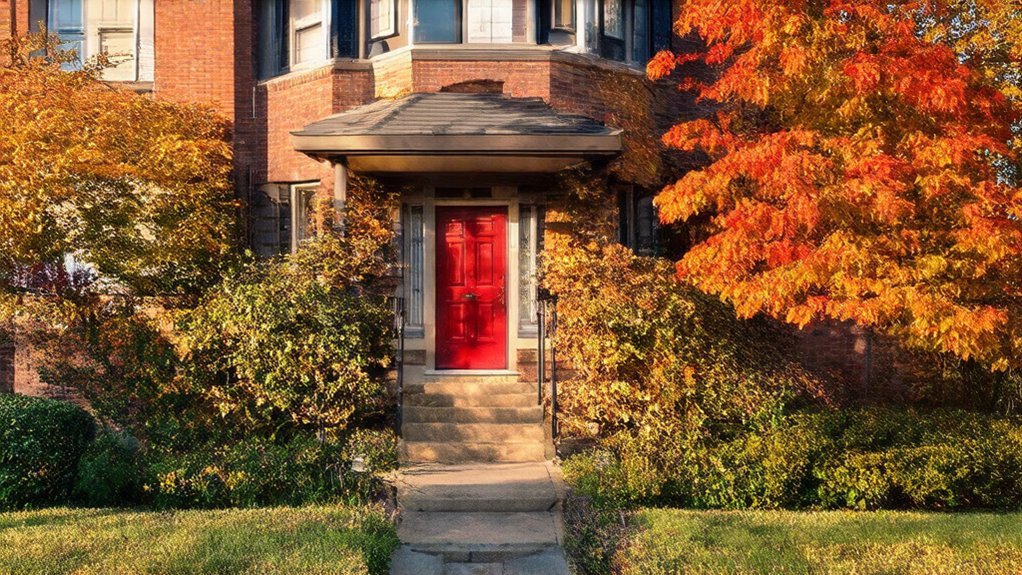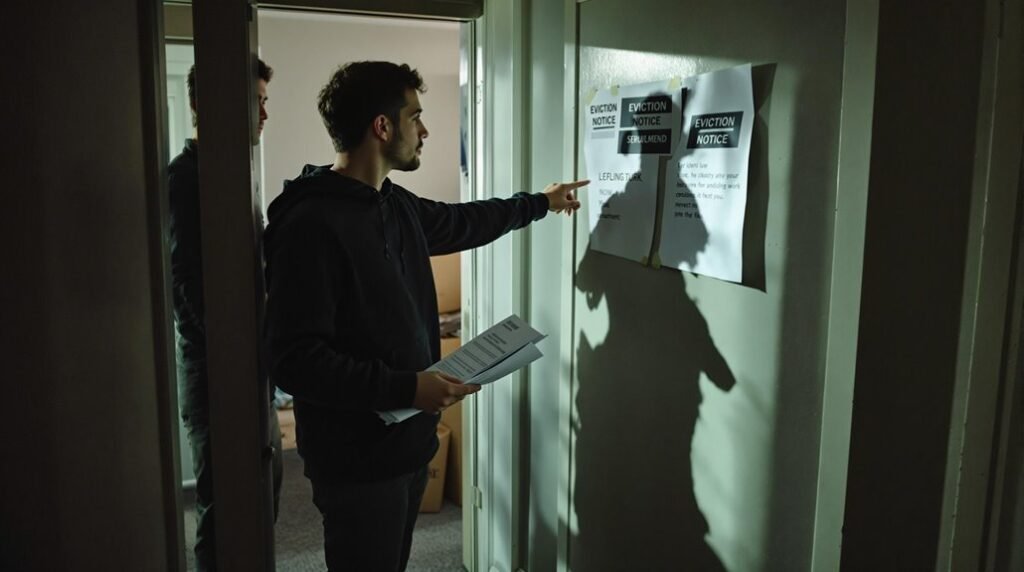The rental application process is your ticket to landing your dream home! You’ll start by filling out a detailed form about yourself, your job, and your rental history. Don’t forget to gather essential documents like your ID, pay stubs, and references. Landlords will check your credit score and income to make sure you can afford the rent. They might also call your previous landlords and run a background check. The whole process typically takes 1-3 days. Stay organized and honest throughout, and you’ll boost your chances of approval. Stick around to uncover more insider tips for acing your rental application!
Understanding Rental Application Forms
When you’re looking to rent a property, understanding rental application forms is essential. These forms are your ticket to securing a great place to live, so it’s important to get them right!
Here’s what you need to know:
- Application forms collect significant info about you as a potential tenant.
- They typically ask for:
- Personal details
- Rental history
- Employment info
- Income details
- References
The Ontario Rental Application Form 410 is a free tool that’s super helpful for both landlords and tenants. It’s like a cheat sheet for tenant eligibility!
Remember, honesty is key when filling out these forms. Fudging the facts might seem tempting, but it can lead to big trouble down the road.
Plus, it’ll hurt your chances of landing that dream apartment.
Want to make the process even easier? Try using platforms like liv.rent. They’re like the dating apps of the rental world – quick, easy, and they show off your best qualities to potential landlords.
Essential Documents for Applicants
A stack of essential documents can make or break your rental application. To boost your chances of success, you’ll need to gather several key items.
Let’s explore the must-have documents and some applicant preparation strategies to help you shine!
First up, you’ll need a government-issued ID. Your driver’s license or passport will do the trick. This proves you’re who you say you’re – pretty important, right?
Next, get ready to show the money! Landlords want to know you can pay the rent. Grab your recent pay stubs, W-2 forms, or tax returns. These prove you’ve got a steady income.
Don’t forget about references! Previous landlords or personal contacts can vouch for your awesomeness. Their good words can go a long way.
Got a furry friend? Be ready with pet info if needed. Some places have specific rules about breeds and sizes.
Lastly, fill out that rental application form. It’s where you spill the beans about yourself and give permission for background checks.
Pro tip: Use these document organization tips to impress:
- Create a neat folder for all your papers
- Make copies – just in case!
- Double-check everything before submitting
Credit Checks and Income Verification

Two essential steps in the rental application process are credit checks and income verification. These help landlords assess your reliability as a tenant. In North York, where the rental market is competitive, these steps are particularly important for landlords to choose reliable tenants.
Let’s talk about credit checks first:
- Landlords usually look for a credit score of at least 600.
- They’ll review reports from agencies like Equifax and TransUnion.
- A good score shows you pay bills on time and manage debt well.
Now, onto income verification:
- You’ll need to prove you can afford the rent.
- Landlords prefer your rent to be no more than 1/3 of your monthly income.
- You might need to show:
- Recent pay stubs
- Tax returns
- Employment letters
Here’s a fun fact: if your rent-to-income ratio is over 40%, landlords might raise an eyebrow! 🤔
Remember, income stability is key. Landlords want to know you’ll be able to pay rent consistently.
So, if you’ve got a steady job and a decent credit score, you’re already ahead of the game!
Don’t worry if your credit isn’t perfect. Some landlords are willing to work with you if you can explain any issues and show you’re financially responsible now.
Landlord References and Background Checks
Several essential steps in the rental application process involve landlord references and background checks. These are vital for landlords to assess your reliability as a potential tenant. In Toronto, these checks are part of guaranteeing compliance with the Residential Tenancies Act, which governs rental housing regulations.
Here’s what you need to know:
- Landlord references:
- Your past landlords might be contacted
- They’ll ask about your payment history and how you treated the property
- Be sure to provide accurate contact info for your references
- Background checks:
- Criminal history is typically reviewed
- This helps guarantee safety for the property and other tenants
- You’ll need to give consent for these checks
Pro tip: Always be honest! Fudging the truth can come back to bite you.
Remember, negative feedback from previous landlords can really hurt your chances. If you’ve had late payments or broken rules before, be upfront about it. Landlords appreciate honesty.
Screening criteria vary, but reference accuracy is key. Double-check all the info you provide. It’s like preparing for a job interview – you want to put your best foot forward!
Don’t sweat it too much, though. If you’ve been a good tenant, these checks should be a breeze.
Conclusion
You’ve navigated the rental application maze like a pro! Armed with your newfound knowledge, you’re ready to tackle any landlord’s paperwork. Remember, it’s not just about ticking boxes; it’s about painting a picture of your stellar tenancy potential. Stay organized, be honest, and keep your spirits high. The perfect rental is just around the corner, waiting for you to open its door. Now go forth and conquer that application process!


















